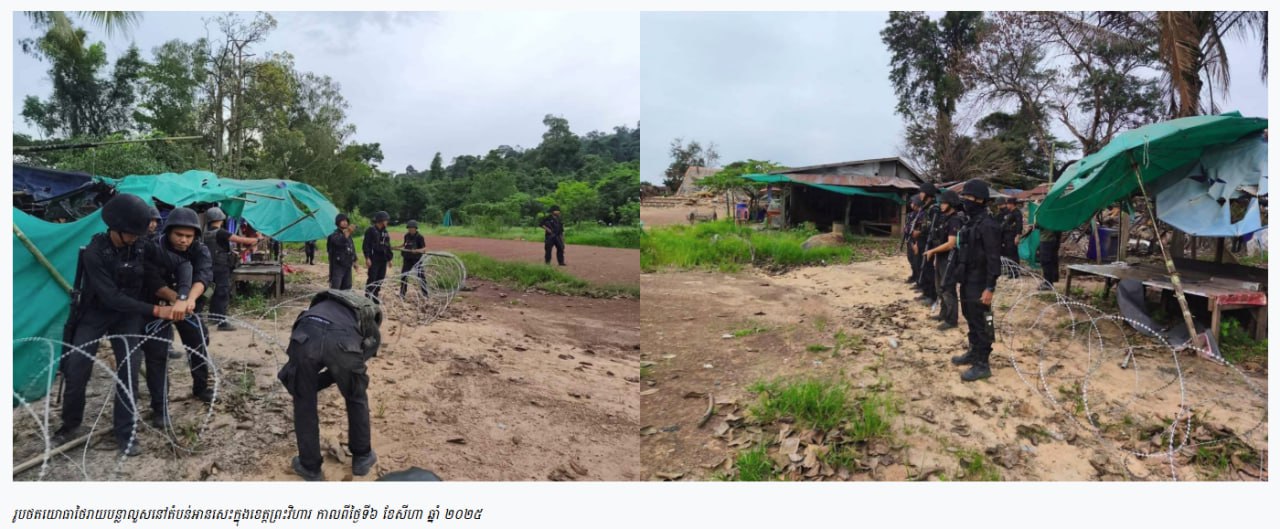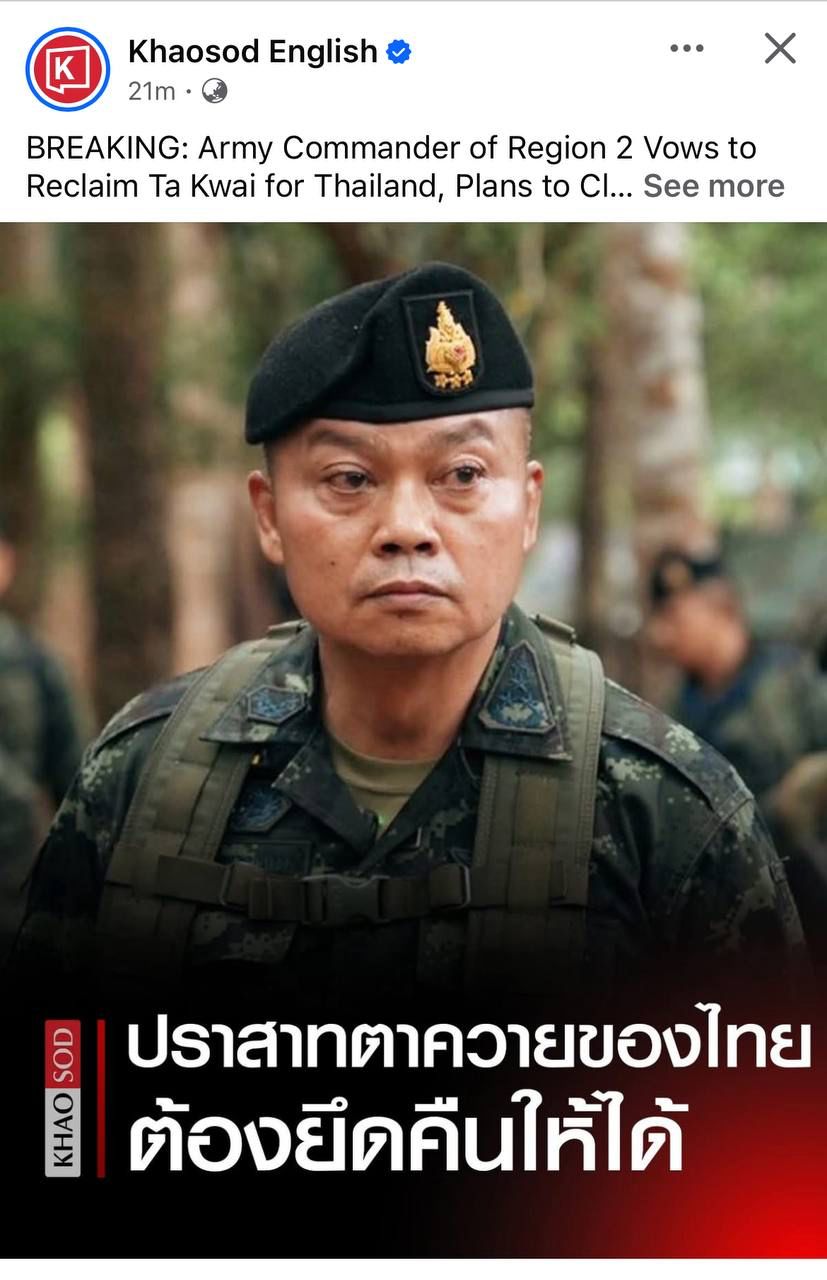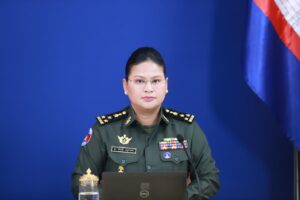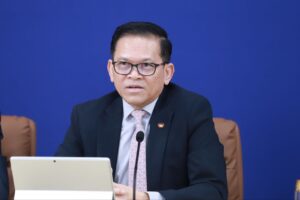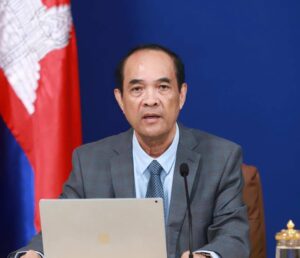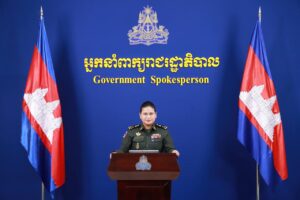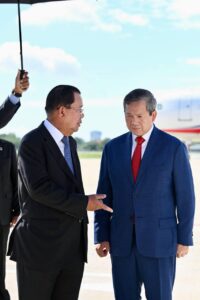Opinion: Thai silent aggression and open provocations
Since the ceasefire agreement came into effect at midnight on July 28, 2025, the Cambodian side has firmly adhered to every term and condition stipulated in the agreement with good faith and sincerity in the spirit of fostering peace and people’s well-being.
By contrast, the Thai side has continuously and blatantly demonstrated its intent to undermine this agreement through the use of covert aggressive tactics, such as deploying troops to intrude into Cambodian territory and laying barbed wires, constructing roads within Cambodia’s sovereign territory and territorial integrity, as well as firing slingshots instead of using weapons at Cambodian troops. Such actions by the Thai military amount to a silent aggression designed to provoke and sabotage the ceasefire should Cambodia’s patience be exhausted.
Moreover, by persistently encroaching upon Cambodia’s sovereign territory after the ceasefire agreement came into force, the Thai army has blatantly engaged in provocative acts through the fabrication of fake news to accuse Cambodia, seeking to manufacture pretexts to conceal its own violations.
Specifically, in order to justify their own troop movements, they consistently accuse Cambodia of mobilizing troops. Similarly, to justify their weapons deployment, they repeatedly accuse Cambodia of mobilizing weapons. To justify their incursions into Cambodian territory, they falsely allege that the Cambodian troops have invaded Thai territory. These are blatant and shameless provocations, driven solely by the ambition to illegally seize Cambodian land using the tactic of “thief crying to stop thief”.
On August 9, 2025, it was reported that Thai troops stepped on landmine, causing injuries to three individuals, one of whom lost both legs. This is not the first time that Thai troops have entered areas containing anti-personnel mines left behind by the war era. However, in every incident, they repeatedly have alleged Cambodia of planting new mines on Thai territory, while in fact, those mines are war remnants.
This matter is so simple to judge because even an ordinary person can understand it by simply asking one straightforward question: Did the Thai troops step on mines on Thai soil or on Cambodian soil? If they stepped on mines on Thai soil, it is evident that the Thai troops themselves planted them. On the contrary, if they stepped on mines on Cambodian soil, it means they had intruded into Cambodian territory where mines were left behind from the wartime. Unfortunately, they never dare to admit the truth; instead, they keep pointing the fingers at the Cambodian troops of planting new mines with the purpose of creating misinformation and allegations.
Before the armed clashes broke out on 24th July, 2025, there were also mine explosion incidents which were followed by similar accusations against Cambodia. After the incidents’ mine explosion, Thai Commander of Second Army Region threatened to close Ta Moan Thom Temple and then opened fires on Cambodian troops. Now, the similar incident has happened again, and the same threat was also aired by the same Thai Army Commander of Region 2 to close Ta Moan Thom Temple. Consequently, if armed clashes break out again in violation of the ceasefire, it is crystal clear that Thailand will be the one who fires first in conformity with their premediated plan, as what happened on July 24th, 2025.
In summary, Thailand is undoubtedly the instigator, and any renewal of armed clashes is another scenario that meticulously crafted with the clear intent to invade Cambodian territory on the basis of their illegal unilateral map.
That is why, even after the ceasefire came into effect, they have recourse to use tactics to intrude into Cambodian territory which they have attempted to claim as their own, thereby violating the ceasefire, specifically breaching the 13-point agreement reached at the Extraordinary Meeting of the General Border Committee (GBC) held on 7th August 2025, in Kuala Lumpur, Malaysia, with China and the United States participating as observers. This Accord explicitly prohibits troop movement and patrol beyond their current positions.
Therefore, we urge the international community, including foreign military attachés, diplomatic missions, and interim observer team—especially the United States, Malaysia, and China, who play key roles in brokering this ceasefire agreement—to act as witnesses and condemn Thailand’s incessant violation of the ceasefire, and to sincerely uphold Cambodia’s legitimate rights to territorial defence.
By Vong Makara—Professor and political analyst
The views and opinions expressed here are the author’s own. 